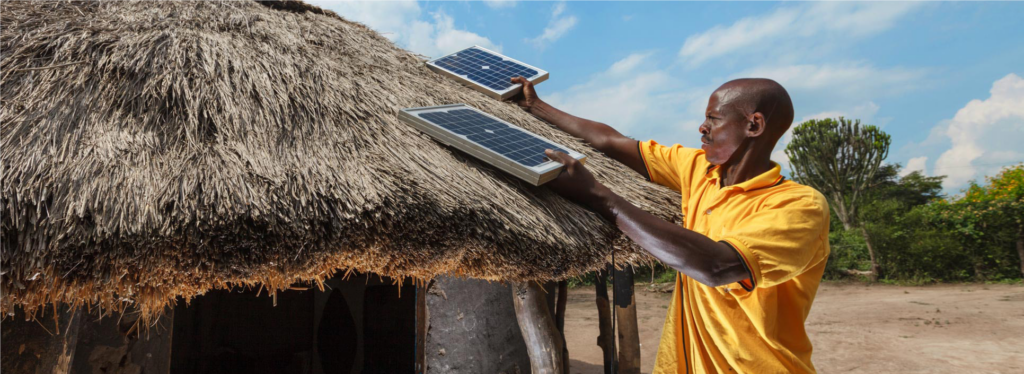Today, more than half of all households across Africa do not have access to any form of energy. This means that more than 600 million people currently do not have electricity.
The challenges with clean energy accessibility
This lack of access to energy across such a vast continent means that a multitude of opportunities, both financial and social, are limited. Everything from schooling to farming is affected. The lack of access to energy is, therefore, one of the biggest factors in the continent’s current socio-economic status, with less opportunity to develop current industries, as well as being limited in the creation of new urban areas and business hubs.
The up-front costs of renewable energy, for which a customer must make an investment that will pay off over several years, is out of reach for the majority of the continent. In spite of a strong demand for solar power in the region, 95% of African households can’t afford this initial cost because many families live on an average income of US$2 to US$10 a day.
Fenix: Making energy affordable
At the heart of Fenix International’s technology is the company’s lockable smart power system, Fenix Power. The product is an expandable solar home system targeting rural, off-grid families and sold through a flexible payment plan. It includes a high-quality solar power ecosystem that transforms sunlight into energy to run phones, lights, radios, TVs, and more. Customers set up the solar kits themselves, and can upgrade by adding more panels, lights, and accessories.
Additionally, Fenix partners with mobile money providers to offer solar power systems via mobile money payments, which allow customers to pay from their mobile wallet, bringing the up-front cost down so as to reach low-income households and making pricing even more affordable by cutting out all middlemen.
Fenix International + Aeris: Energising Africa
Uganda, Zambia, Cote D’Ivoire, Benin, Nigeria, Mozambique. These are the fields of operation for Fenix. As a subsidiary of ENGIE, Fenix International is headquartered in Kampala, Uganda and is a next-gen energy company working for the past decade to bring clean energy solutions to rural, off-grid African homes.
Every Fenix Power system is embedded with an Aeris SIM card to allow for real-time interactions between the core Fenix application and every device in operation. The connectivity allowed by the Aeris SIM card enables Fenix to manage lockout on the device, display current key account information on the LCD display, update the firmware, and receive granular device reports from the field.
Affordability
Customers make a deposit, take home their kit, self-install the system at their house, and repay their loan over 12 to 30 months for as little as $0.14 per day. As the customer repays the loan, the system locks and unlocks automatically using Aeris SIM cards over the GSM network, allowing the power system to serve as collateral for the loan. Once a customer has repaid the entire loan, they then have access to free, clean, and safe power for the life of the system.
Customers also build a Fenix credit score with each payment, helping them unlock access to future products, such as financial loans, power upgrades, and TV upgrades, as well as revenue-generating products.
The right solution
To address the growing need for electricity across Africa, Fenix, with help from Aeris, is providing cost-effective solar energy solutions to thousands of households. So far, the company has expanded rapidly, reaching more than 600,000 customers and positively impacting three million people across six markets. By next year, the company hopes to have hundreds of thousands of IoT SIMs operating across Africa.





